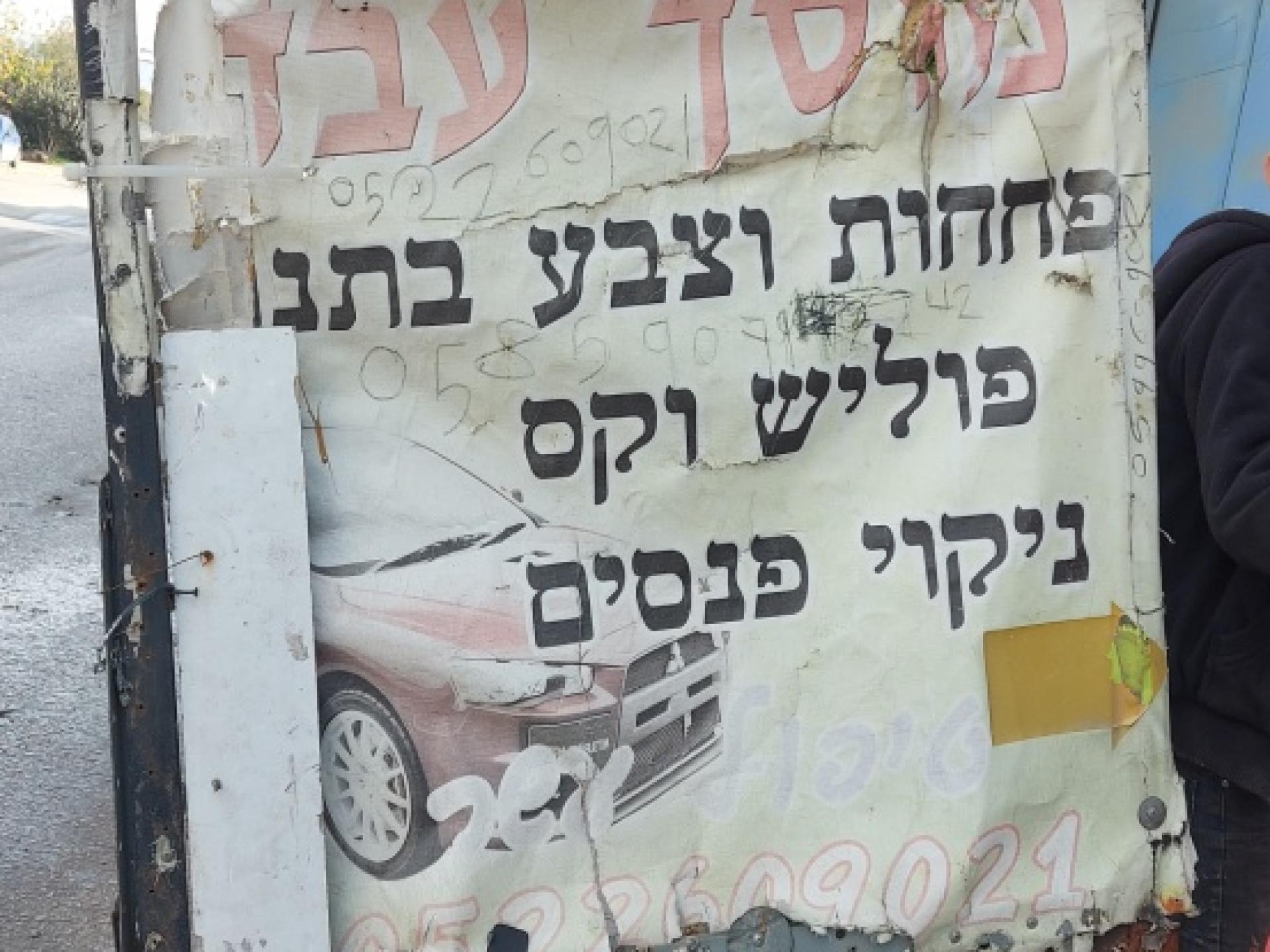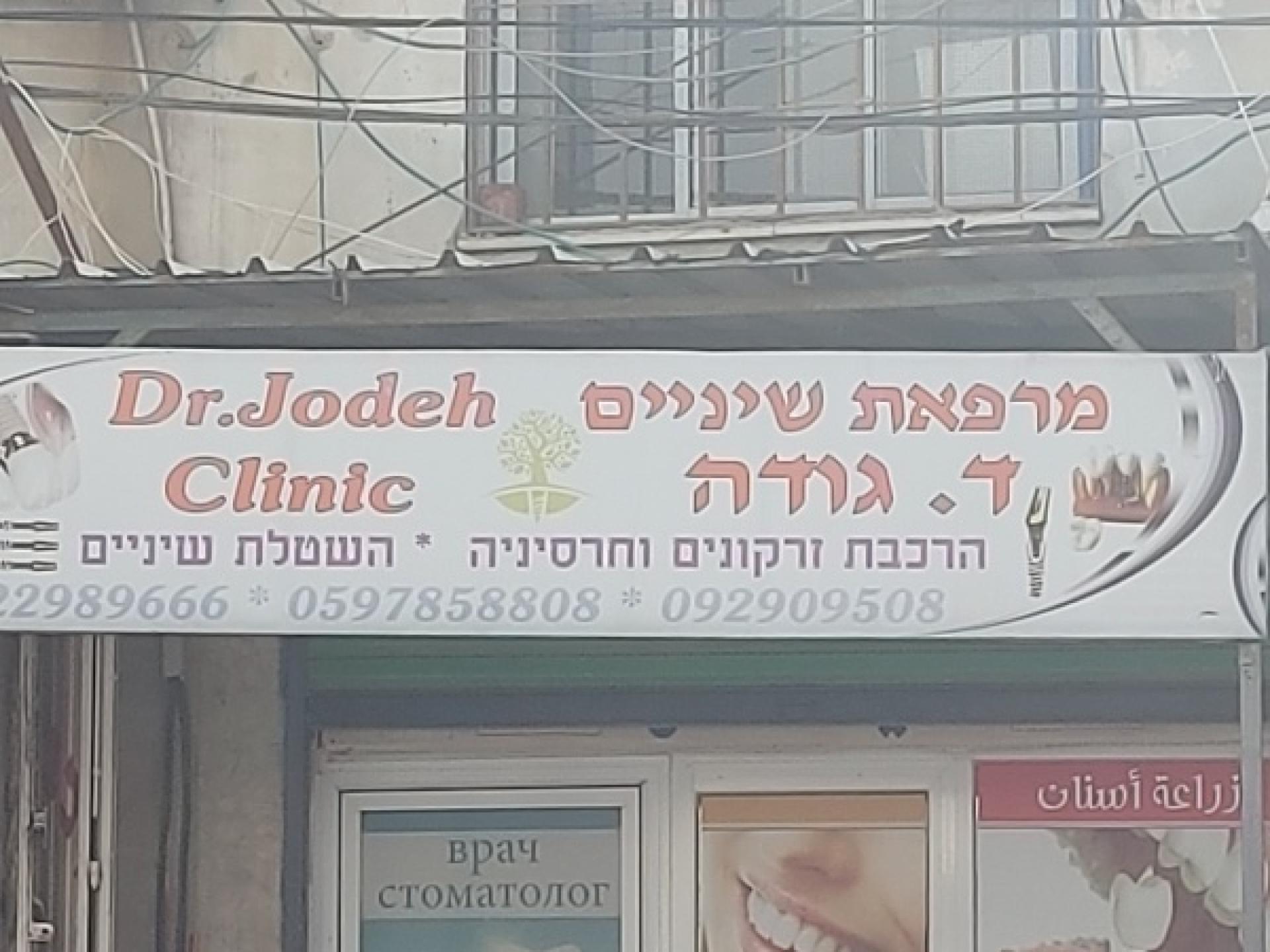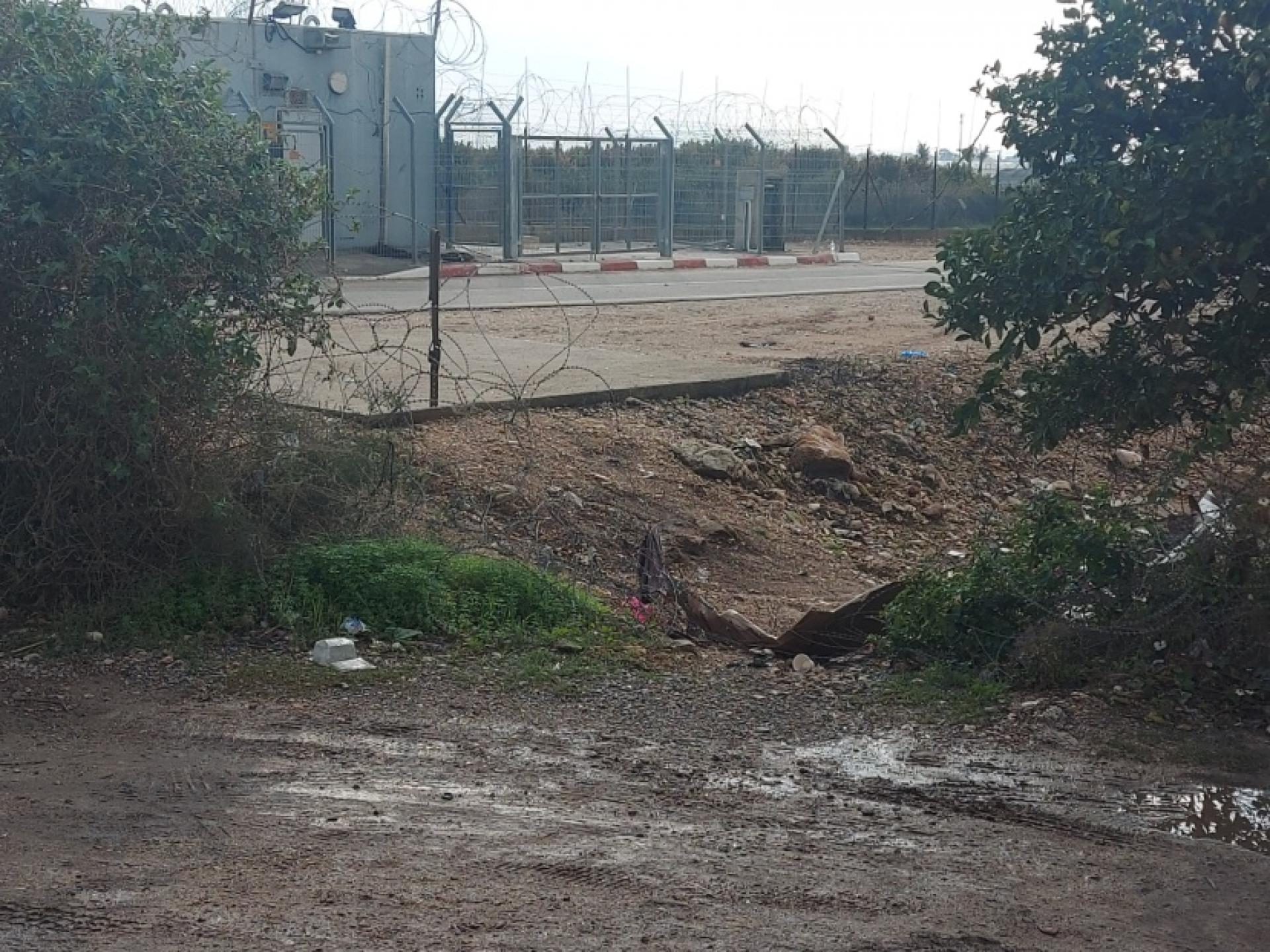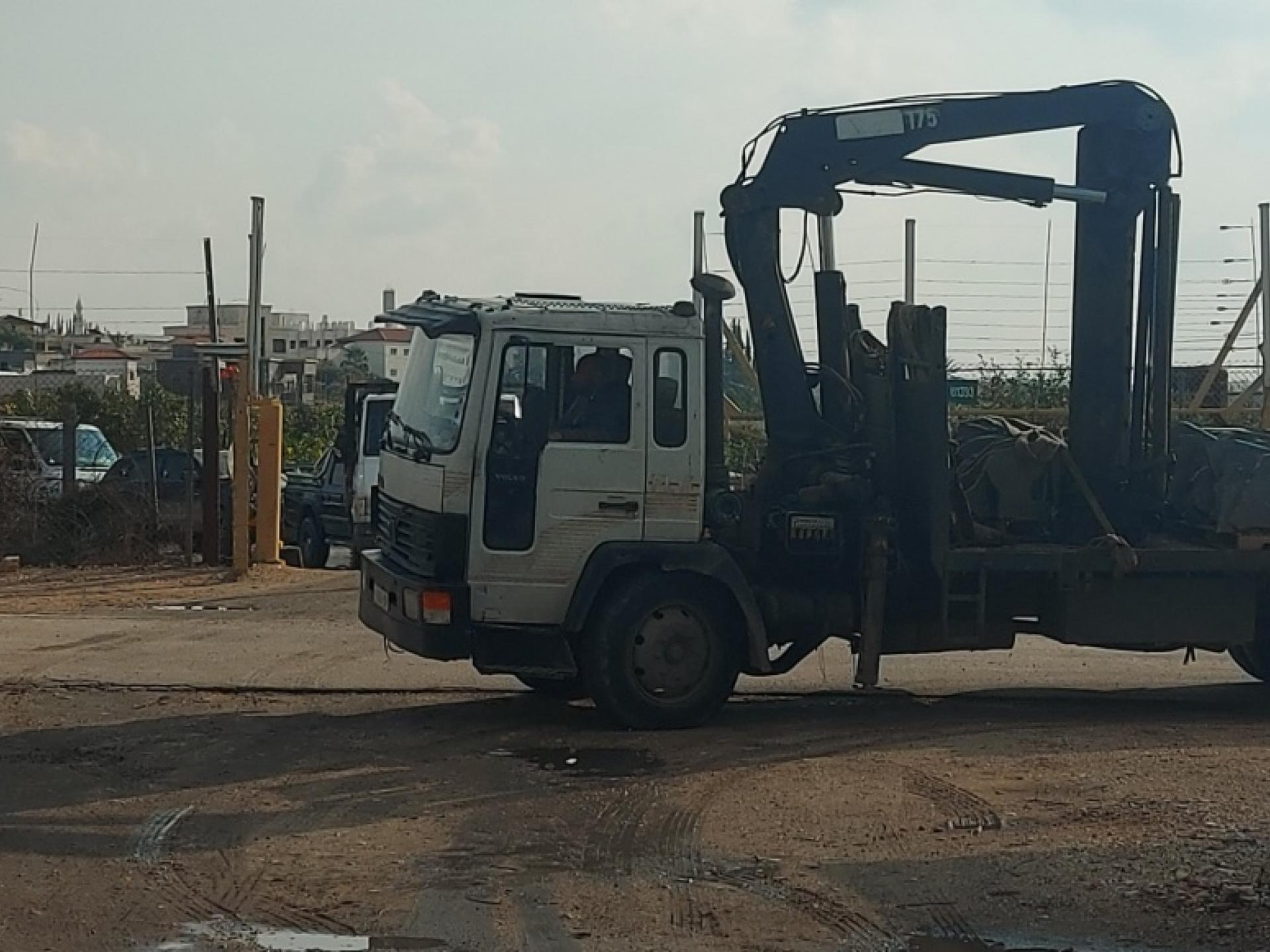'Azzun - The army comes to ‘Azzun daily
On the way to ‘Azzun, our first stop, a long line of vehicles beyond the Eliyahu checkpoint waiting for their drivers. Heavy equipment continues paving the road on the right.
‘Azzun – We unload the parcels at Z’s home. Three children at home on school break help carry them. Z.’s waiting for his appointment at Hadassah in a few days. We’re hoping they’ll help him return to a normal life and find work.
The army comes to ‘Azzun daily. The military vehicles harass the children who throw stones at them. That’s how an unnecessary confrontation begins. What’s the army looking for here? Let them live in peace.
No soldiers at the entrance to ‘Azzun.
We continue to Nabi Ilyas. Despite the new bypass road, many of the signs are in Hebrew and the owner of the garage told us that many Israelis come to him; he’s not short of work. (Of course - Israelis would rather pay less…). I’m not sure other business people would have given the same answer. Some of the shops appeared pretty empty.
Habla – We arrived at 13:45; the checkpoint gates were already open. Heavy vehicular traffic from both directions, mostly heading for the plant nurseries filled with seedlings. Despite efforts to add netting to the fence there’s no door at the opening to the left for people on foot, and there’s an opening on the right that even a 4 x 4 vehicle could go through. On our previous shift we saw them bringing furniture through immediately after the gates were locked and the soldiers left. So what’s the point?
were already open. Heavy vehicular traffic from both directions, mostly heading for the plant nurseries filled with seedlings. Despite efforts to add netting to the fence there’s no door at the opening to the left for people on foot, and there’s an opening on the right that even a 4 x 4 vehicle could go through. On our previous shift we saw them bringing furniture through immediately after the gates were locked and the soldiers left. So what’s the point?
A truck doesn’t cross. We couldn’t learn why, and it’s not clear what finally happened.
A pleasant Palestinian woman tell us she’s a widow, is working hard and is exhausted. She also has back trouble, will undergo surgery and is somewhat anxious. She allowed us to photograph her.
Of course, we finally visited O., our old friend. We bought flower and vegetable seedlings very cheaply (we’re also entitled to get something out of our tour), then sat with him for coffee and stories. A. says the female soldiers on this shift aren’t pleasant and don’t behave well towards those going through. One of them took the documents from a group of Palestinians and disappeared. They waited. When she returned A. asked her why she did it. Her response: Who are you? I’m their boss, he replies. I need them to work, and you’re holding them up.
The female soldier isn’t impressed. Shoshi says that on the previous shift soldiers took documents from a Palestinian who had a merchant’s permit to enter Israel. He sat waiting for about an hour for them to return. When they came back they interrogated him a bit and then returned his documents.
A. is excited to have received an entry permit to Israel. He intends to take his young daughters on a train ride, and we plan to invite him to Tel Aviv and give him an “all-inclusive” tour.
As we left toward the bridge over Highway 6 we see excavation and road work. We don’t know what they’re for, but the land clearly belongs to Palestinians.
חבלה - הגענו בשעה 13:45 והשערים במחסומים היו כבר פתוחים. תנועה ערה של רכבים משני הצדדים, בעיקר יוצאים למשתלות, עמוסים בשתילים. למרות המאמצים להוסיף רשת צפופה לגדר, משמאל אין בכלל דלת לעוברים ברגל, ומימין פתח שגם כלי רכב (4X4) יכול לעבור דרכו. במשמרת הקודמת ראינו שהעבירו רהיטים דרכו דקה אחרי נעילת השערים ועזיבת הרכב הצבאי. נו, אז בשביל מה??
משאית אחת לא עוברת. לא הצלחנו לברר מדוע ולא ברור מה היה בסוף.
פלסטינית חביבה מספרת לנו שהיא אלמנה ועומדת לעבור ניתוח והיא קצת מפחדת. הסכימה להצטלם.
ביקור במשתלה. קניות, תה וסיפורים.






